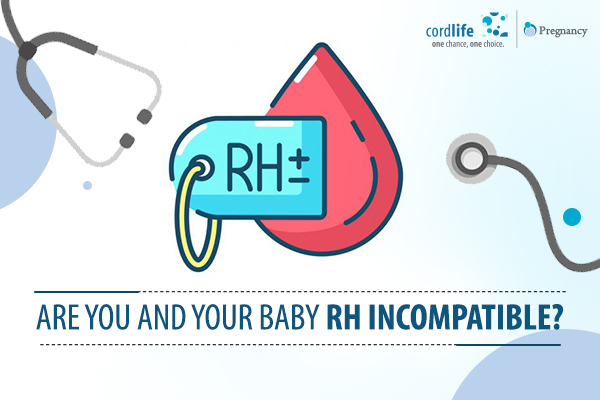Table of Contents
During pregnancy, problems can arise if you and your baby are Rh incompatible. A test early on in your pregnancy will help determine your Rh factor, which is essentially an inherited protein found in red blood cells. If you don’t carry it, then you’re Rh-negative. While it doesn’t affect your day-to-day health, it becomes crucial when you’re pregnant. In this article, we’ll find out how it can affect your pregnancy and what treatment you may be advised.
What Can Happen If You and Your Baby Are Rh Incompatible?
If you are Rh-negative and your baby is Rh-positive, then if your immune system is exposed to the Rh protein, it will treat it as a foreign object. This will happen if your baby’s blood cells enter your bloodstream, which is possible during labour and delivery. It’s less likely to occur during pregnancy as your baby’s blood doesn’t usually enter your bloodstream. However, during birth, the blood can mix. If this happens, your body will create antibodies and send them to the placenta to fight against these ‘foreign substances’ in your baby’s blood cells.
While Rh compatibility isn’t a problem if it’s your first pregnancy, it can be an issue if you carry another Rh-positive child later on in life. At this time, your antibodies will recognise the Rh protein as foreign and will pass into your baby’s bloodstream and attack the red blood cells. This can lead to swelling or even a rupture in your baby’s red blood cells, causing them to be destroyed. Once destroyed, bilirubin starts forming in their bloodstream, further leading to jaundice, lethargy or low muscle tone.
Can Rh Incompatibility Be Treated?
Treatment of Rh incompatibility is done to prevent the effects that are caused. Once born, your baby may be treated with a blood transfusion, hydrating fluids, electrolytes or even phototherapy, which aims at reducing the bilirubin in your baby’s blood. These treatments will be conducted depending on how severe the condition is and will be repeated till the Rh-negative antibodies and the bilirubin in your baby’s blood is removed.
If you’ve already developed the antibodies, you can expect your doctor to closely monitor your pregnancy to watch out for any complications that can develop. You may also receive an Rh immune globulins (Rhlg) injection during the first trimester to avoid incompatibility effects. If your baby is then born with Rh-positive blood, you should get a second injection a couple of days after delivery. While these injections have successfully reduced the need for blood transfusions, in some rare cases, blood transfusions can be administered during pregnancy of after delivery.
What Are the Complications Caused by Rh Incompatibility?
If left untreated, Rh incompatibility can lead to severe problems in your baby. These include brain damage, fluid build-up, difficulties with movement, speech or hearing, anemia, seizures or even heart failure. While these are serious conditions, with the right diagnosis, care and treatment, the effects of the condition can be minimised.
Are You at Risk of Rh Incompatibility?
If you are Rh-negative and your partner is Rh-positive, there are risks of incompatibility. As declared earlier, since it takes time for the antibodies to build up, firstborn children are often not affected. However, if the antibodies build up during an earlier miscarriage of abortion, your firstborn can be at risk. Remember, with early detection and the appropriate treatment, you can reduce this condition’s effects and deliver a healthy and happy baby.
